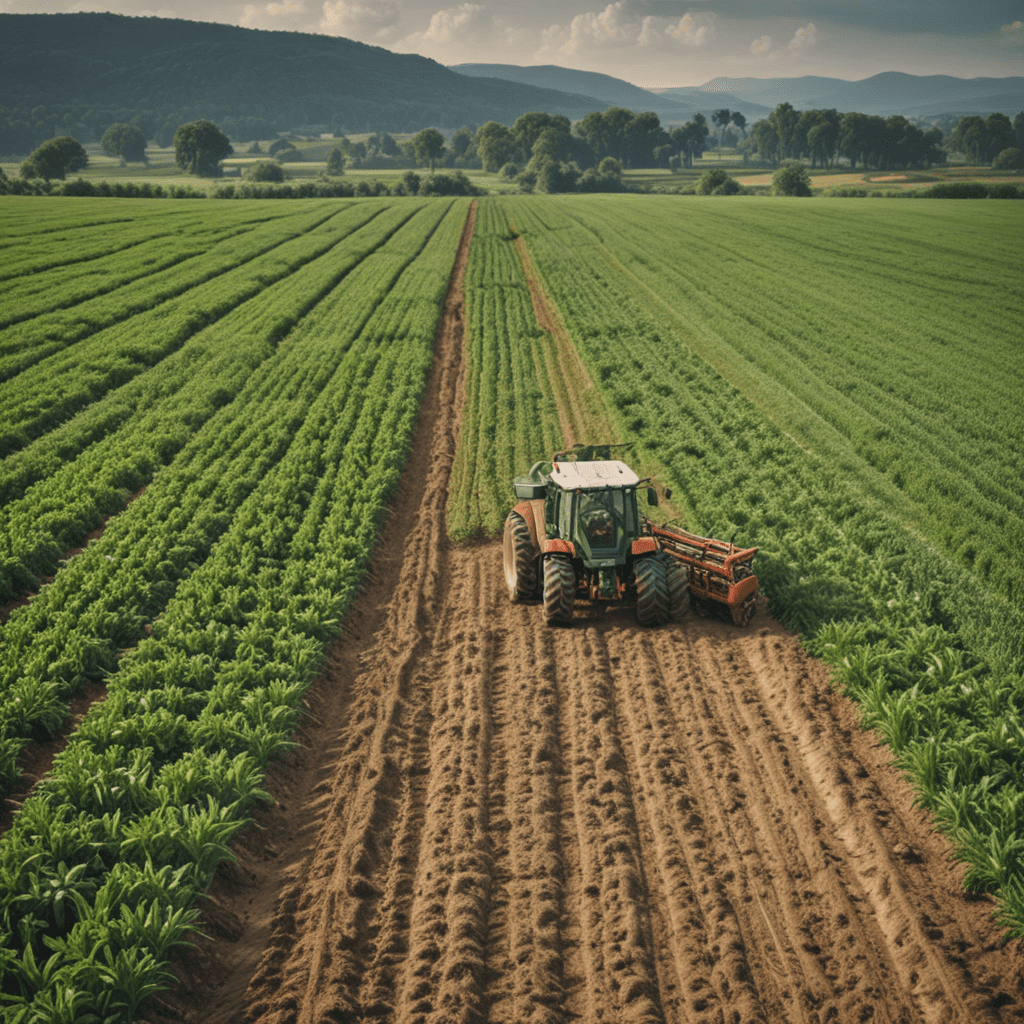
Data Privacy in the Agriculture Sector: Protecting Agricultural Data
The agriculture sector is becoming increasingly reliant on data to improve efficiency, productivity, and sustainability. However, the increased collection and use of agricultural data also raises concerns about data privacy. Here's an overview of the key issues, challenges, and best practices related to data privacy in agriculture.
Introduction
Data privacy in agriculture refers to the protection of personal and sensitive information collected from agricultural operations. This data includes information about farmers, their land, crops, livestock, and equipment. Protecting this data is crucial to maintaining trust among stakeholders and ensuring the continued growth and innovation of the agriculture sector.
Challenges in Data Privacy in Agriculture
The agriculture sector faces several unique challenges when it comes to data privacy. These challenges include:
- The vast amount of data collected: Agriculture generates a massive amount of data, which can overwhelm traditional data privacy mechanisms.
- The diversity of data sources: Data is collected from a variety of sources, including sensors, satellites, and agricultural machinery, making it difficult to track and manage.
- The sensitivity of agricultural data: Agricultural data can reveal sensitive information about farmers' operations, financial situation, and personal habits, making it a target for cybercriminals.
Best Practices for Agricultural Data Privacy
To protect agricultural data privacy, stakeholders should follow best practices such as:
- Implementing strong data security measures: This includes encryption, access controls, and regular security audits.
- Establishing clear data privacy policies: These policies should outline how data is collected, used, stored, and shared.
- Educating stakeholders about data privacy: Farmers, agricultural workers, and industry professionals should be aware of the importance of data privacy and how to protect their data.
Case Studies of Data Breaches in Agriculture
Several high-profile data breaches in agriculture have highlighted the importance of data privacy. For example, in 2020, a cyberattack on the agricultural equipment manufacturer AGCO resulted in the theft of sensitive farmer data. This breach exposed farmers' personal information, financial data, and farm management practices.
Emerging Technologies and Their Impact on Agricultural Data Privacy
Emerging technologies such as artificial intelligence (AI) and blockchain are transforming the agriculture sector. While these technologies offer many benefits, they also raise new data privacy concerns.
AI algorithms require vast amounts of data for training and operation, which can increase the risk of data breaches. Blockchain technology, while secure, can also make it difficult to control and manage data once it is recorded on the blockchain.
Role of Government and Industry in Protecting Agricultural Data
Governments and industry organizations play a crucial role in protecting agricultural data. Governments can enact regulations and laws to safeguard data privacy, while industry organizations can develop best practices and standards for data handling.
Conclusion and Future Perspectives
Data privacy is essential for the growth and sustainability of the agriculture sector. By understanding the challenges and implementing best practices, stakeholders can protect agricultural data and foster trust among farmers, consumers, and other stakeholders.
As the agriculture sector continues to evolve, new technologies and data privacy challenges will emerge. It is imperative for governments, industry organizations, and individual stakeholders to stay informed and adapt their data privacy strategies accordingly.
FAQs
Q: What is the most important thing farmers can do to protect their data privacy?
A: Educate themselves about data privacy and implement strong security measures such as encryption and access controls.
Q: What are the key challenges to data privacy in agriculture?
A: The vast amount of data collected, the diversity of data sources, and the sensitivity of agricultural data.
Q: What are the benefits of data privacy for agriculture?
A: It fosters trust among stakeholders, ensures the continued growth and innovation of the sector, and protects farmers from financial and reputational risks.


